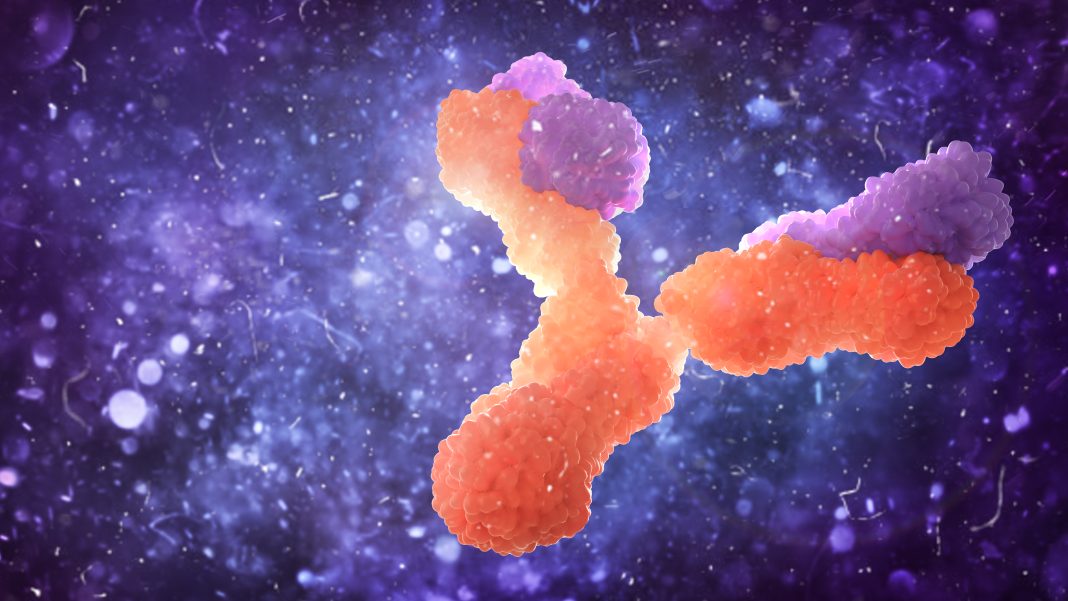Antibody-mediated rejection is the most common cause of immune-mediated allograft failure after transplantation. Rejection mediated by antibodies has proven tricky to resolve. Now, researchers at the University of California, San Francisco (UCSF), report a new strategy to protect cells from antibody-mediated killing and may overcome persistent obstacles to cell transplantation and immunotherapy.
The strategy, published in Nature Biotechnology in an article titled, “Protection of cell therapeutics from antibody-mediated killing by CD64 overexpression,” uses a “decoy” receptor to capture the antibodies and take them out of circulation before they can kill the therapeutic cells, that they treat as invading foreigners. The tactic may also be useful for organ transplants.
“Allogeneic cell therapeutics for cancer therapy or regenerative medicine are susceptible to antibody-mediated killing, which diminishes their efficacy,” wrote the researchers. “Here we report a strategy to protect cells from antibody-mediated killing that relies on engineered overexpression of the IgG receptor CD64. We show that human and mouse iPSC-derived endothelial cells (iECs) overexpressing CD64 escape antibody-dependent cellular cytotoxicity (ADCC) and complement-dependent cytotoxicity from IgG antibodies in vitro and in ADCC-enabled mice.”
“This antibody-mediated rejection is really hard to overcome,” said Tobias Deuse, MD, the Julien I.E. Hoffman, MD, chair in cardiac surgery and senior author on the study. “So, rather than trying to suppress the patient’s immune system, we looked for ways we can alter the cells that the patient will receive and better enable them to survive.”
Until recently, most CAR-T therapies have been made using the patient’s own cells, but the long-term commercial viability of cellular therapies of all types will rely on “allogeneic” cells.
“We have been through this with organ transplantation, so we know what’s coming for cellular transplantation,” said Deuse, a cardiac transplant surgeon who is no stranger to the troubles caused by immune rejection. “This issue is likely to be a severe obstacle in any type of allogeneic cell transplantation.”
Normally when an antibody binds to a cell, it acts as a sort of tag, calling out for an immune cell to bind to the antibody and set off an efficient process of destroying the tagged cell. To stop this, the researchers developed a method to catch the antibodies before they bind to cells, preventing activation of the immune response.
The researchers genetically engineered three types of cells—insulin-producing pancreatic islet cells, thyroid cells, and CAR-T cells—so that each type made and displayed large numbers of a protein called CD64 on their surfaces.
On these engineered cells, CD64, which tightly binds the antibodies responsible for this type of immune rejection, acted as a decoy, capturing the antibodies and binding them to the engineered cell, so they wouldn’t activate immune cells.
“We saw that we can snatch up high levels of these antibodies, which resulted in very robust protection for the therapeutic cells,” said Deuse. “This is clear proof-of-concept for this approach.”
Further research is needed before the approach can be tested on cells that are designed to be therapeutics or transplanted cells, he said.
“My hope is that our concept can help bring about the development of universally usable allogeneic cells,” said Deuse. “That would make treatment with cellular therapies cheaper and more accessible, putting them within reach for many more patients.”


